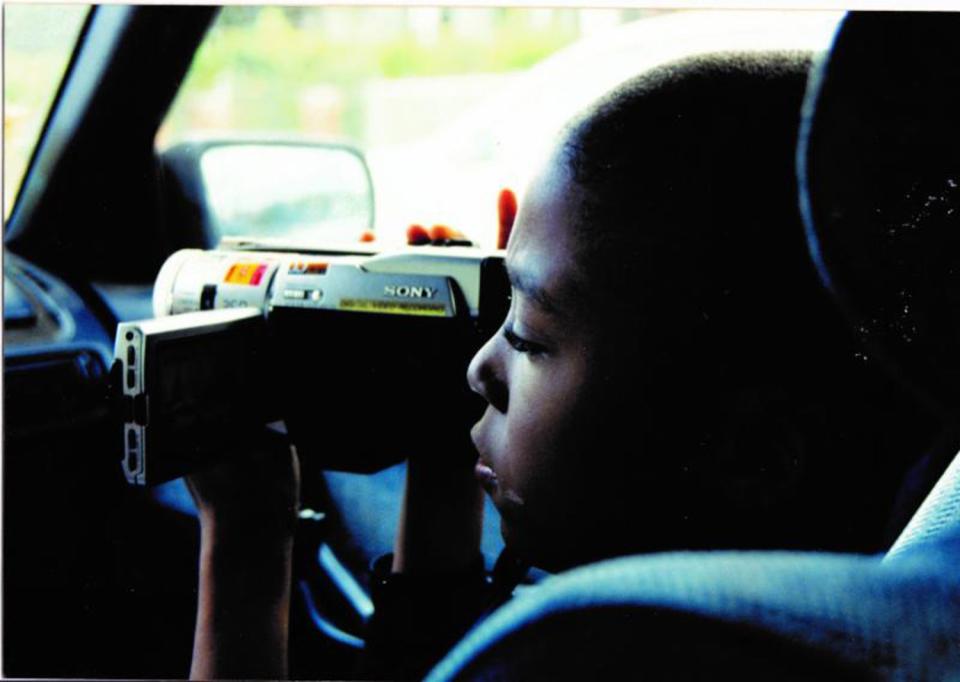Review: Hard to watch, hard to look away, '17 Blocks' chronicles a D.C. family's struggles

A lot can happen to a family over 20 years, especially in a neighborhood battered by crime, underserved by society and stricken by hopelessness. Set in the perennially troubled Southeast D.C. area behind the U.S. Capitol, Davy Rothbart’s documentary “17 Blocks” covers a two-decade span in which the Sanford-Durant household — a single Black mother with three children — struggle to beat the odds and overcome the kind of demons (both internal and external) that routinely threaten to tear at the fabric of families across the nation.
Rothbart isn’t the only one filming, however. The project began in 1999 when he was living in Southeast D.C. and became friendly with two engaging kids at his local pickup basketball game: 15-year-old Smurf and his younger brother Emmanuel, then 9. As he got to know the rest of the Sanford-Durants — middle sister Denice and mom Cheryl — Rothbart took notice of Emmanuel’s interest in filmmaking, and persuaded the family to use his handheld video camera and record their lives. Appropriately, the family is given an “in collaboration with” credit after Rothbart’s at the end.
What transpires in front of the lens, in the early going, has the kind of rough, raw intimacy that can swing wildly from home-movie endearing to want-to-look-away voyeuristic. Emmanuel sweetly talks about what his favorite school subjects are, Denice wants some privacy when she’s on the phone, Smurf and a friend talk crudely about girls, and Cheryl — a kind-voiced dreamer with a middle-class upbringing who once held showbiz aspirations — dresses everyone up for a visit to her parents, who give her money.

That assistance — and the trace of concern in the grandfather’s acknowledgment of it — is our first sign of a vulnerability that underscores the tribulations to follow, most prominently Cheryl’s drug use, and Smurf’s beginning to deal drugs. Though by the end of high school Emmanuel has been pegged as the promising one — having avoided vices, fallen in love with a nice neighborhood girl named Carmen, with both of them college-bound and career-minded — Cheryl misses his graduation because of her addiction. Smurf, meanwhile, has already done time. Both Cheryl and Smurf give voice to their regrets about decisions made, and while it’s impossible to know if the regular availability of a camera helped foster that reflection and frankness, the steady drip of expression-as-healing is a hallmark of the film’s impact.
That emotional outpouring becomes a flood, though, when tragedy hits the family with a thunderbolt, adding news cameras to a household already used to hitting “record,” and turning them into one more statistic in a national conversation about community safety. Inside their cramped walls, however, the sadness can only be folded into their overall need — there are bills to pay, a new generation to raise, and longstanding problems that don’t magically disappear. Which is why, as uncomfortable as this sanctioned glimpse inside a grief-hobbled clan often is, the simple humanity of how the family tries to move on is a compelling through line.
Caring carries us through “17 Blocks,” even when a music cue might seem excessive, or a family member’s revelation of a past trauma feels abruptly handled, or the hint of a broader quality-of-life issue goes unexplored. Nevertheless, it’s valuable when any vérité documentary with such a vantage point is able to show us how many societal ills — from addiction to gun violence to poverty to gentrification to incarceration — can touch one family, keeping them in a near-constantly reeling state.
“17 Blocks” is a blunt message of how much hope and resilience can still be found inside pain — Rothbart and editor Jennifer Tiexiera may not have been able to finesse a thousand hours of footage, but they’ve wrestled it into a shape that at least displays its emotional strengths better than its structural weaknesses. Don’t expect the artful, essayistic experience Garrett Bradley’s family-across-the-years documentary “Time” is, which was also assembled from what’s found and what’s forged from a family’s sorrows. But that’s OK because sometimes movies are urgent dispatches, and “17 Blocks” is an admirably moving one at that.
This story originally appeared in Los Angeles Times.

